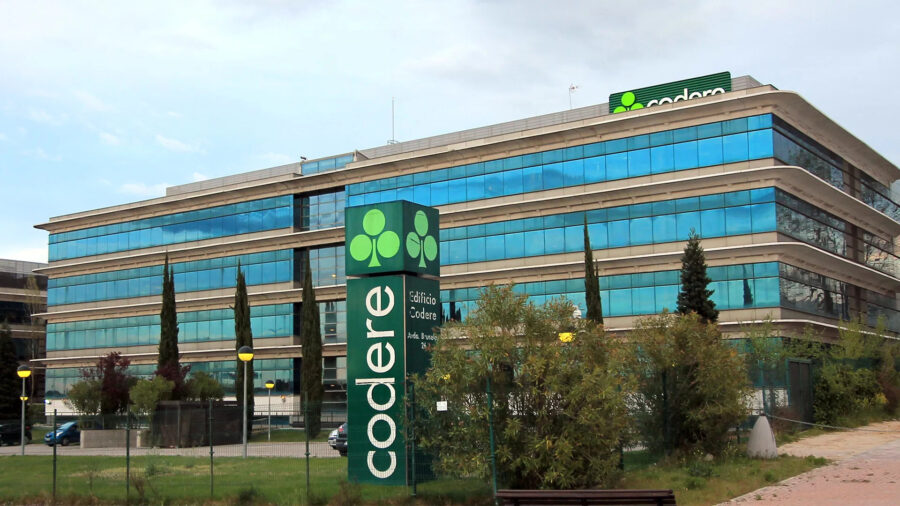Codere Online delivers ultimatum to Colombia on tax

Codere Online will make no further investments in Colombia if the country’s value-added tax on deposits is renewed. That was the position of Codere executives in their third-quarter earnings call.
“It was a little bit counterproductive,” outgoing Chief Financial Officer Oscar Iglesias said of the VAT. Today was his last day as Chief Financial Officer, though he will continue on as a board member. “It’s a tough market” that makes little sense for Codere looking ahead. He said the company hopes that a centrist or right-leaning political party prevails in the upcoming election.
“The unit economics are not good” in Colombia because of the VAT, Iglesias continued. “If they do nothing, this extraordinary measure falls away.” He said Codere was operating on the assumption that the VAT could continue. “If that’s not the case we will return.”
Codere executives were more sanguine on the Mexico market, despite an impending doubling of the country’s tax on gambling revenues. Chief Executive Aviv Sher said he expected it to have a chilling effect on new operators and those contemplating a Mexican entry, but that he expected “a more benign corporate landscape going forward.”
Iglesias said Codere was reviewing how its Mexican agreements were structured and how the effect of the tax increase could be shared. He allowed that the tax hike affects Codere’s willingness to invest further in Mexico but that it is early still.
“A tax increase is not good,” Iglesias continued, saying Codere would prefer that the Mexican government concentrate on cracking down on offshore operators and gray-market gambling instead.
Codere brass said they were looking forward to a stronger 2026 in Mexico because of the forthcoming World Cup. They were asked why they weren’t expanding into the US for the same reason. “It would be a great time” to do so, laughed Sher before demurring.
Colombian and Panama business was not broken out separately in Codere’s earnings statement, and company executives would not delve into specifics. “We see good trends [and] some mitigation to Colombia,” Sher said. The results, Iglesias added, reflected recent product improvements in Panama.
Anti-money laundering activities in Mexico also came up for discussion. “We have not seen anything officially,” remarked Sher, who said Codere was continuing to operate as before. “We are not aware of anything that has an impact on us.”
Added Iglesias, “The news sometimes isn’t the best source of information.”
David McKee is an award-winning journalist who has three decades of experience covering the gaming industry.
Verticals:
Sectors:
Topics:
Dig Deeper
The Backstory
Why Codere’s warning lands now
Codere Online’s threat to freeze new investment in Colombia does not come in a vacuum. The country imposed a 19% value-added tax on player deposits this year under Decree 175, a temporary measure in effect from Feb. 22 through Dec. 31. That levy hits customer inflows rather than operator revenue, a design that can weigh on acquisition, retention and play frequency. It also pushes operators to decide whether to absorb costs, pass them through or scale back. Codere’s leadership framed the VAT as a structural drag on unit economics and said the company would wait out policy clarity before committing more capital.
The short fuse matters. If policymakers let the decree expire, Colombia’s economics could reset in 2026 just as global operators plan budgets tied to major events and product launches. If the VAT is extended or made permanent, operators face a different calculus. In parallel, Latin America’s competitive landscape is shifting. Rush Street Interactive continues to lean into the region. It rolled out Thunderkick titles on Rushbet in Colombia and marked Peru as a growth pillar for its LatAm portfolio. That momentum shows the market remains attractive even as tax friction rises.
Operators with diversified digital scale also signal resilience. Caesars said its online arm posted double-digit growth, with Caesars Digital revenue up 24.3% in the second quarter and adjusted EBITDA doubling year over year. The company framed the unit as tracking 2021 targets, according to a recent update. That backdrop raises the stakes for midtier brands like Codere that must parse which jurisdictions still clear return hurdles when customer costs suddenly jump.
The VAT’s ripple effects on behavior
Colombia’s VAT is unusual because it taxes payments into licensed platforms, including cash, transfers and crypto. That shifts incentives across the value chain. For players, the cost of entry rises. For operators, bonus budgets and promos become tools to blunt churn and push volume. Stake took the aggressive route, unveiling a cashback program that reimburses the 19% VAT as a bonus. The move seeks to protect handle without cutting posted odds or payout rates. It also sets a benchmark competitors must consider meeting, which can compress margins while the decree is in force.
Codere’s stance points the other way. Management signaled it will not chase volume at any price in Colombia and prefers to wait for political signals. The company cited hopes for a centrist or right-leaning outcome in elections, implying a better chance the VAT lapses. That is not the only lever. Brands with exposure to Mexico are bracing for a separate revenue tax increase, which Codere said could cool new entries and trigger contract reviews to share the burden. In that light, Colombia’s design — a deposit tax versus a gross gaming revenue tax — presents a sharper shock to customer behavior in the near term.
Product strategy is tilting accordingly. Suppliers still see Colombia as a launch pad. Thunderkick’s entry via Rushbet adds fresh content with marquee titles like Sword of Arthur and Midas Golden Touch 2. Content variety can offset friction by giving players more reasons to log in despite higher upfront costs. Yet if operators must spend more to neutralize the VAT at the wallet level, content partners could face tighter deal terms as licensees guard unit economics.
A stricter perimeter around legal play
The regulator, Coljuegos, is fortifying the legal market at the same time. Authorities ordered internet service providers to block access to Polymarket for operating unauthorized election betting and opened an investigation, underscoring that games of chance are a state monopoly requiring authorization. The agency has requested the blocking of 28,100 illegal gambling websites and expects about 3,000 more, per its latest action. That posture helps licensed operators by limiting illegal competition that can undercut prices and skirt taxes.
The crackdown also complicates the customer journey. Some players who balk at the VAT could be tempted by offshore options that do not levy deposit taxes. Enforcement seeks to narrow that outlet. For codified brands, the trade-off is clear: higher legal costs in the short run versus a cleaner field over time. Codere argued that policymakers should prioritize curbing gray-market activity rather than hiking taxes. The sequence matters because an expansive illegal channel can absorb price-sensitive users when legal costs rise. Coljuegos’ recent moves aim to keep those users onshore.
Regulatory expansion amid fiscal pressure
Colombia is not only tightening enforcement. It is broadening the product slate that feeds public health funding. Coljuegos awarded a nationwide Keno concession expected to generate more than COP485 billion for healthcare over five years. The lottery-style game will be one of the first in Latin America to use blockchain for ticket issuance, a transparency pitch intended to build trust and reduce fraud risk, according to the regulator. Four regional operators will manage deployment, with over 16,000 terminals planned and a January 2026 launch after a four-month setup window.
That expansion highlights the fiscal imperative. Coljuegos says legal gaming has contributed over COL$256.7 billion to subsidized healthcare, a figure the government wants to grow. The VAT on deposits is part of that toolbox, though temporary. New product concessions like Keno broaden the base in a more durable way. For private operators, the message is mixed: Colombia wants a larger, cleaner market and more tax yield. The open question is how much of that yield comes from structural growth versus transitory measures that raise customer costs.
What to watch as decisions converge
Codere’s pause forces a broader test. If more brands adopt Stake-like VAT offsets, short-term play volumes could hold, but margin pressure will rise until Dec. 31 or longer if the decree is extended. If operators follow Codere and retrench, acquisition could cool and concentrate share with deep-pocketed platforms willing to subsidize deposits. Supplier pipelines, such as Thunderkick’s rollout with Rushbet, suggest content will keep coming, but commercial terms may tighten if bonus burn rates climb.
Two external signals will shape the next steps. First, Coljuegos’ pace of illegal site blocking will determine how much leakage the VAT creates. A successful clampdown could keep price-sensitive users inside the regulated ring, making deposit taxes more tolerable. Second, macro operator performance will influence capital allocation. Strong digital results like Caesars Digital’s double-digit growth show that scale players can absorb regional volatility and still meet targets. Midmarket operators must pick spots.
Codere also tied its Latin America outlook to tentpole events. Management expects a stronger 2026 in Mexico from the World Cup and is weighing the United States as a tactical opportunity without committing. That timing overlaps with Colombia’s Keno launch and whatever follows the VAT’s sunset. The stakes are straightforward. If Colombia pairs a tougher perimeter and broader products with a lighter tax load on players, investment should resume. If not, the market may skew toward a few operators willing to fund VAT relief out of margin while others redeploy capital elsewhere in the region.






